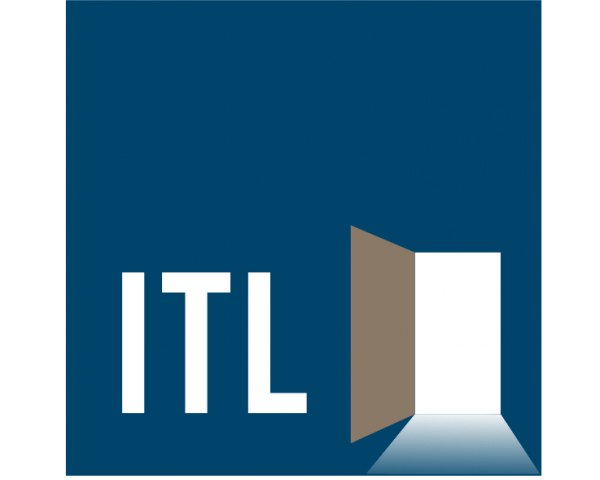Paul Carroll
I’ve been a fan of Planck since I met the CEO a couple of years ago, so your acquisition of Planck caught my interest. I’m intrigued about how you intend to integrate their impressive AI capabilities into your software for agencies. Could you start us off with the background for the deal?
Taylor Rhodes
Sure. Applied Systems is an insurtech that actually has been around for 41 years now. Our founder started with an agency management system and has branched out from the core back office into front office sales and marketing, digital payments, etc. Our clients number in the thousands of agencies, with over 700 insurers on the carrier side of the market.
I’ve been in tech now 25-plus years, including at an early cloud company called Rackspace in the early 2000s. I remember going out into the world in the early 2000s and trying to sell cloud computing to CIOs. We used to get told, “No, we're never going to run that kind of data outside of our data center. It’s too critical.” The unlock was the global financial crisis in 2008. People had to cut costs and think of new ways to do things.
By 2009, we couldn’t beat cloud customers off with a stick, but it took a cataclysm in the market to get them to think differently.
There had to be some evolution. You can't just take a three-tier web app, throw it on the cloud, and hope it works, even though that's what customers thought initially. Over 2009, 2010, 2011, people learned how to design for the cloud, and you can see the business model explosion that then happened, including with all the apps that were enabled on our phones.
And I got a front seat to all that.
When we started thinking about AI a couple of years ago, it was hard to separate hype from reality. So we started engaging with a lot of agencies and saying, “What are your most pressing problems?”
Historically, the insurance industry has been a bit of a laggard in investing in tech on the agency side, but that started changing with COVID. When you sent everybody home, there were a whole bunch of processes that didn’t work. That lit a fire under this industry to digitize more and more.
What I think the industry hopes for out of AI is that it can truly be an intelligent automation capability. We have an aging workforce, a lot of whom will retire over the next decade, and unemployment is exceptionally low within the insurance industry. The last thing an agency wants to do is lose a valuable producer or a CSR [customer service representative] or have them so burdened with inefficient systems that they often can’t work on the most valuable tasks.
AI holds the promise of intelligent automation across key workflows. That might be conversations at the point of renewing with a client; the AI can go out and look at all the data points around the company. Has the risk changed because something has changed about the business? If this business, for example, is a restaurant but takes digital payments, do they have a cyber policy? If they don't have a cyber policy, that's a great sales opportunity.
And the Planck guys have built a very clever, proprietary platform that takes advantage of all the LLMs [large language models]. They can go out and discover a lot of valuable information about a target company, about the risk profile of that company, and offer very clear and powerful insights.
We also have unique datasets here at Applied because we see a lot of information within our agency management system and in our carrier connectivity system, and we can leverage those datasets to help train AI models to be much more insightful for application to an insurance agency.
Paul Carroll
Do you have a favorite example or two of how AI is being used?
Taylor Rhodes
Let's start on the productivity side. CSRs at an insurance agency spent an awful lot of time reading emails, trying to understand what the email is actually asking for, searching for documents, opening documents and reading them, comparing them against a different document, and doing all of this in preparation for what actually matters: the conversation with the client.
That conversation might be around a claim, a servicing issue, a renewal, or a new piece of business. What AI can do is summarize emails and tell you in a very punchy way what they are actually about. That sounds simple, but it’s very powerful when you're handling hundreds of emails a day.
The second thing is, AI can understand documents and can distill what’s in them. It can then help you classify what's in that document and compare it to another one so you have a before-and-after view of what's happening. People spend a lot of time on that sort of work.
The person is still in charge. You still get to review and see if AI has made a summary or a recommendation that seems right to you. But instead of doing that all day long, you have an AI that fits right into your workflow and provides you with the right insights at the right moment and cuts hours of work out of your day.
Now let's talk about the revenue side. The number one job in an insurance agency is managing renewals. It is by far the most time-consuming and highest-volume thing that folks do. And the difference between having a renewal rate at, let's say, 90% versus 93% or 94% really matters to the bottom line.
So what do you do when you're getting ready for renewal? Well, again, you're pulling up old emails from the client. You're going to the current policy. You're looking at what happened. You're trying to go out onto the internet and find information about that insured client and their business. Maybe they’re a barber shop, but they’ve started to serve liquor. Are they still a barber shop, or are they actually in a different NAICS code that has a different risk profile?
What Planck and Applied together can do is really create an intelligent renewal capability. We can go out and find all that information and summarize it into key risk factors with ratings, with transparency about why we assigned the ratings we did. This can’t be a black box.
We can also do the sort of thing I mentioned before in that simple example about a company that has started accepting digital payments. That’s a high-fraud area, so if the business doesn’t have a cyber policy we can flag the opportunity to add a line of business.
Paul Carroll
If you project out three to five years, are there particular areas for development that you think could be especially fertile?
Taylor Rhodes
In our point of view, AI isn’t meant to replace human beings. It's meant to help them do the highest and best work.
But there are many ways AI agents could help. Think of a CSR answering phone calls, trying to understand what the client is looking for., connecting the client to the right information so they can self-serve if they want to, finding the right information and presenting it to the human who then will pick up the interaction. ”Now that we’ve agreed on what we're really talking about here, let me get a human involved so the human can do the things that only humans can do.”
You can think about all of these interaction points that happen between an agency and a client or an agency and the insurer, and you can think about AI being a source for the first interaction.
Those are the types of things we see taking place over all the different workflows in jobs within the agency. And they probably aren’t too far down the road. They just take focused effort based on understanding the peculiarities of an agency. And they take having feedback loops and cycles with your clients to help you shape the product in a way that's going to be most valuable for them.
Paul Carroll
That’s great. Thanks, Taylor.
Leveraging Data to Enhance Every Agency Role
Expense Management Via Emerging Technology
3 Steps for Insurers to Keep the Human Touch
Value of Human Touch in Customer Relations
The Need for Agility in Insurance
About Taylor Rhodes
 | Taylor Rhodes, Chief Executive Officer, leads Team Applied and is responsible for the company's overall strategy and operational execution. Rhodes joined Applied in 2019 after serving as chief executive officer of SMS Assist, the leading cloud-based software platform for multi-site property management. Previously, he was CEO of Rackspace, where he led the Company’s growth from a cloud pioneer to an industry leader with more than two billion dollars in revenue, while establishing the company as a mainstay on the Fortune 100 Best Companies to Work For®. Prior to Rackspace, he served as a leader in enterprise, financial and corporate strategy roles at Electronic Data Systems Corporation. Mr. Rhodes is a former United States Marine Corps infantry officer and holds a MBA from the University of North Carolina at Chapel Hill. He serves on the board of directors for Applied, Zenoss and Liquid Web, LLC. |








